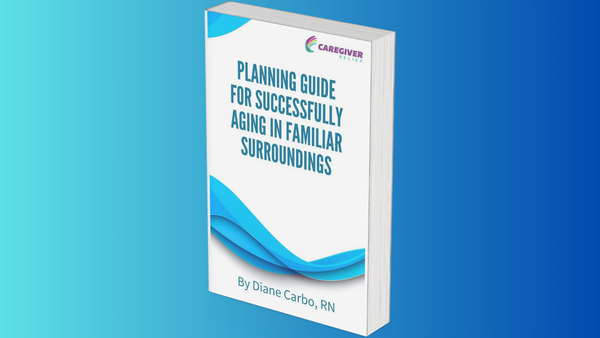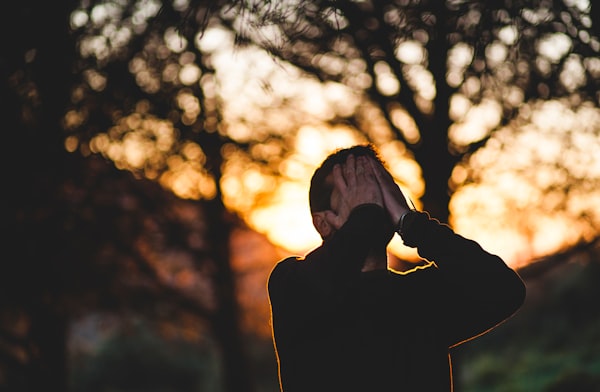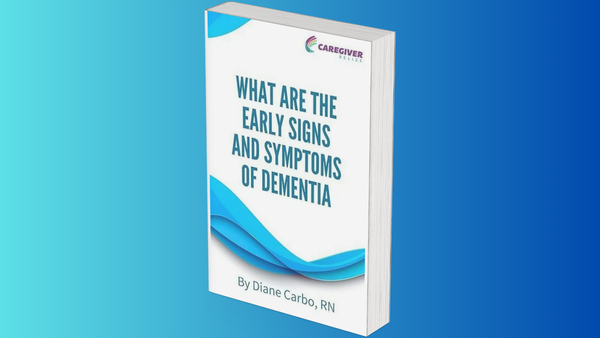Does Fear of Death Decrease with Age?

Are you afraid of death? Do you fear the unknown? If so, you’re not alone. Millions of people around the world feel anxious and fearful when faced with the prospect of their own mortality. In this blog post, we will be exploring how age may affect a person’s fear of death. We will investigate the different causes and effects of the fear of death, as well as look into how age may influence an individual’s fear of death. We will also discuss strategies on how to cope with the fear of death and provide resources for those who wish to explore this topic further.
This blog post is meant to be an in-depth look at the fear of death and its potentially complicated relationship with age. We hope that by the end of this post, readers will have a better understanding of this topic and be equipped with the tools necessary to address any fears they may have. So let’s dive right in!
The fear of death is a normal reaction that most humans experience. It is an emotion, rather than a phobia, that can manifest differently for every individual. Common causes of the fear of death include the lack of an understanding of mortality and a fear of the unknown. It is a subject that many feel uncomfortable discussing, yet it is a reality that all individuals must confront at some point in their lives.
Death can be seen as a frightening concept because of its finality. For many, it symbolizes an ending, which can create feelings of anxiety and helplessness. The fear of death may also reflect a fear of pain, suffering, or leaving loved ones behind. Additionally, the fear of death can be linked to religious beliefs, as the idea of eternal life or punishment after death influences how individuals perceive death.
The fear of death is something that many people face throughout their lifetimes, regardless of age. This fear can be debilitating, as it can affect a person’s overall wellbeing. Individuals can feel overwhelmed with anxiety, sadness, or even guilt when they think about death. It is important to understand this fear, as it can lead to depression, anxiety, and other mental health issues if left unchecked.
Age is an ever-evolving concept, and it can mean different things depending on who’s defining it. From a developmental standpoint, age is a measure of the number of years an individual has been alive. This is often used to track how an individual has grown over time, and what behaviours they have learned which are appropriate for their current age. Age is also used to refer to how individuals are seen in society, such as expectations of maturity and responsibility that increase with age. Lastly, age is used to describe life experiences; the more years you spend living, the more experiences you have and the more wisdom you’ve acquired.
Age is not just a number that marks the passing of time, but rather a measure of our growth, development, and life experiences. Understanding age helps us to understand how the fear of death changes with each passing year. By exploring research, interviewing professionals, and examining literature, we can gain insight into how age affects the fear of death.
Age and Fear is a topic that is often overlooked, yet can play an important role in our mental health and well-being. As we grow older, the fear of death can become more pronounced. In this post, we will explore how age affects an individual's fear of death and what can be done to alleviate the fear.
The fear of death is a natural reaction to the uncertainty of life, rooted in the instinct for self-preservation. With age, however, the fear of death becomes more intense and pervasive. A study by the Journal of Psychosocial Research found that both elderly people and young adults reported similar levels of fear concerning death. The only difference was that older individuals tended to worry about death more than younger adults.
One theory suggests that fear of death increases with age due to a decrease in the quality of life. As we get older, our physical and cognitive abilities diminish, making it harder for us to cope with the challenges of everyday life. This could lead to a sense of insecurity and even despair, which in turn could heighten our fear of death.
In addition, older people tend to reflect more on their mortality than younger people, which can increase one's sense of anxiety. This reflection may come from the lived experience of having watched friends and family pass away, or from simply becoming aware of the inevitable: that one day, we too must die.
Finally, social norms and cultural practices can also affect the fear of death. In societies where death is viewed as a taboo and not discussed openly, older people may feel more uncomfortable discussing their own mortality. Similarly, if death is seen as dreaded or shameful, older people may feel more apprehensive about facing the end of their lives.
Overall, research has shown that fear of death does tend to increase with age. Although this is a natural part of life, there are several ways to manage the fear and anxiety associated with death. From practicing mindfulness to engaging in meaningful conversations about life, there are strategies that everyone can use to cope with the fear of death.
Research and Statistics on Age and Fear of Death
One way to better understand how age can affect our fear of death is to examine the research and statistics that have been conducted on the subject. Studies have found that there is a correlation between the fear of death and age, and that as a person ages, their fear of death tends to decrease. For example, a study conducted by the American Psychological Association in 2004 found that older people are more accepting of death and mortality than younger people. This study found that people aged 65 and over have a lower fear of death compared to those aged 18-24.
Data from the National Center for Health Statistics also suggests that older adults experience lower levels of fear when it comes to death. A survey conducted by the NCHS in 2008 reported that individuals aged 45 to 64 had the highest chance of having no fear of death, while individuals aged 18 to 24 had the highest chance of feeling very fearful of death.
Other research studies support this conclusion – revealing that adults over 65 generally feel more at peace with death compared to younger individuals. To further explore this correlation, we should turn to the professionals that work with the elderly. By talking to psychologists or geriatricians, we may gain new insight into why there is such a stark difference in levels of fear due to age.
Understanding how age affects the fear of death can be difficult to understand from a layperson’s perspective. To further explore this question, it may be helpful to gain an understanding from a professional perspective. By talking to psychologists, doctors, and other medical professionals, we can gain insight into how age may affect levels of fear and anxiety around death.
Talking to a professional can be a great way to gain more insight into how age affects the fear of death. Professionals in the field of psychology specialize in mental health and can provide unique perspectives based on their expertise. It’s important to remember, however, that everyone’s experience with death is different and that there is no one-size-fits-all solution.
A doctor or healthcare provider could also provide insight into how age affects the fear of death. Doctors and medical professionals have experience in dealing with end-of-life issues, and can provide valuable insight into how age can influence attitudes and feelings towards death.
Additionally, speaking to a social worker, priest, or other clergy member might also offer helpful insight. These individuals know the importance of having faith during times of difficulty, and may offer unique advice and support for those struggling with the fear of death.
In summary, speaking to a professional can be a great way to gain a better understanding of how age can influence our fear of death. Whether it’s a psychiatrist, doctor, clergy member, or social worker, these individuals can provide valuable insight into how age affects our attitudes and feelings towards death.
As people age, how they approach the concept of death can change dramatically. Through literature, films, and television shows, we can observe how age has a profound influence on the fear of death.
In literature, many of the classic novels and writings center around aging and mortality. For example, in William Shakespeare’s Hamlet, the protagonist goes through a dramatic transformation as he ages and comes to terms with his mortality. In Hermann Hesse’s novel Siddhartha, the main character embarks on a journey of self-discovery and ultimately learns to accept the inevitability of death. Similarly, other works such as Emily Bronte’s Wuthering Heights and Leo Tolstoy’s War and Peace explore the themes of aging, mortality, and the fear of death.
We can also see examples of age impacting the fear of death in films and television shows. The movie The Shawshank Redemption explores the idea of redemption and coming to terms with death in old age, while the television show Mad Men features characters facing death from cancer, Alzheimer’s Disease, and other age-related illnesses. In both of these pieces, we see how age plays an instrumental role in how an individual approaches their mortality.
The power of literature, film, and television shows to evoke emotion and facilitate understanding of complex topics makes them an invaluable source of insight into how age impacts our fear of death. Through analyzing these works, we can gain a deeper understanding of how the concept of death is shaped by age, and how it affects our approach to mortality.
Fear of death is a natural emotion for most people, and it can inhibit us from living life to the fullest. While fear of death is not uncommon, it can be overwhelming and debilitating. Fortunately, there are many ways to help individuals cope with their fear of death. In this section, we will discuss some effective techniques that can help individuals overcome their fear of death.
1. Understanding Fear
The first step to overcoming fear of death is to understand what it is. Fear of death is closely linked to anxiety and often manifests itself as fear of the unknown. It is important to recognize that fear of death is a normal emotion and that we should not feel ashamed or embarrassed acknowledging that we are afraid. Once we have identified our fear and accepted it, we can begin to take steps to better manage it.
2. Talking About Fear
It is essential to talk about fear of death in order to better understand it. Talking to someone about your fears can provide much-needed relief and insight. Having an open dialogue with friends, family, or even professional counselors can help individuals confront their fears and gain additional perspective on why they may have these feelings.
3. Meditation
Meditation is a great way to alleviate the fear of death. Focusing on your breath and calming yourself down can help to reduce feelings of anxiety and help to find inner peace. Additionally, meditation can help to develop mindfulness and help you to stay present in the moment.
4. Expose Yourself Gradually
Facing fear can be daunting, so it is important to take small steps towards facing it. Start by exposing yourself to things that make you a little bit uncomfortable. For instance, if you are afraid of death, try reading books on the subject or watching documentaries related to death. Gradually increasing exposure to your fear can help to reduce its intensity over time.
5. Find Comfort in Faith
If you believe in a higher power, faith can provide immense comfort during times of fear and anxiety. Religion offers a source of strength and provides many paths to finding peace and understanding. Praying, engaging in spiritual practices, and being surrounded by a supportive congregation can all provide solace against fear of death.
These are just a few ideas to help individuals cope with fear of death. Knowing that fear of death is a normal emotion and having access to effective techniques for managing it can help individuals lead healthier and more fulfilling lives.
When we consider the fear of death, it is important to understand the role that age plays. In this blog post, we explored how age can influence an individual's levels of anxiousness or fear around death. We investigated research and data, took on a professional perspective, and looked at examples from literature.
We discussed why the fear of death can be common among people of all ages and the ways it can manifest differently according to age. We also tried to determine whether this fear decreases with age or not. After taking into consideration all these points, we concluded that there is no permanent answer on whether or not the fear of death diminishes as age increases. Different factors, such as life experiences, mental health, and level of understanding can significantly impact this fear.
We also provided various solutions and techniques to respondents for overcoming their fear of death. This includes developing a connection to something greater than ourselves, finding meaning in life, acknowledging our mortality, and talking to a professional when necessary. We hope that this guide has helped you gain a better understanding of the fear of death and how it relates to age.
Are you having difficulty understanding the fear of death and how age can affect it? If so, then we want to hear from you! We invite you to leave comments or ask questions related to the blog post content. We believe that through continuous dialogue and discussion, we can better understand this complex topic. We recognize that everyone has a unique perspective and we are eager to learn from you. So please don’t hesitate to share your thoughts and pose your queries – we will be sure to respond!
Death is an inevitable part of life, and how we process this event can be impacted by our age. It is true that our fear of death decreases as we age, based on the numerous studies conducted on the matter. Yet, it is important to remember that there are still people who fear death in spite of their age, and not everyone's experience is the same.
By understanding the fear of death and age, we can become more self-aware and knowledgeable about how our respective age influences our attitudes towards mortality. By recognizing the correlation between age and fear of death, we can apply the knowledge to our personal lives and seek out ways to confront and overcome any fear or anxiety that we may have.
Overall, it is clear that age does affect our fear of death. Whether we are young or old, it is important to address our fears and anxieties in order to live a happy and healthy life. Knowing the facts and seeking out professional help when necessary is a great way to gain insight and understanding on how to cope with death and its related fears.
When it comes to our own mortality, we all have a natural fear of death. It's only natural considering the fact that death is the end of our physical and psychological existence. However, with age, many people have experienced a decrease in their fear of death. This blog post has explored the correlation between age and fear of death, as well as the ways in which this phenomenon can be addressed and overcome.
It is important to recognize that age alone is not enough to change how we feel about mortality. Other factors such as life experiences, attitude, and beliefs are also important. Additionally, talking to professionals and exploring literature is an essential part of understanding and dealing with the fear of death.
Finally, although fear of death is a natural emotion, having a better understanding of it can make a huge difference in how we view and live our lives. Taking the time to explore the ways we can reduce our fear of death can not only help us to live life with more joy and peace but also appreciate the beauty and preciousness of mortality.
You might also like this article:









